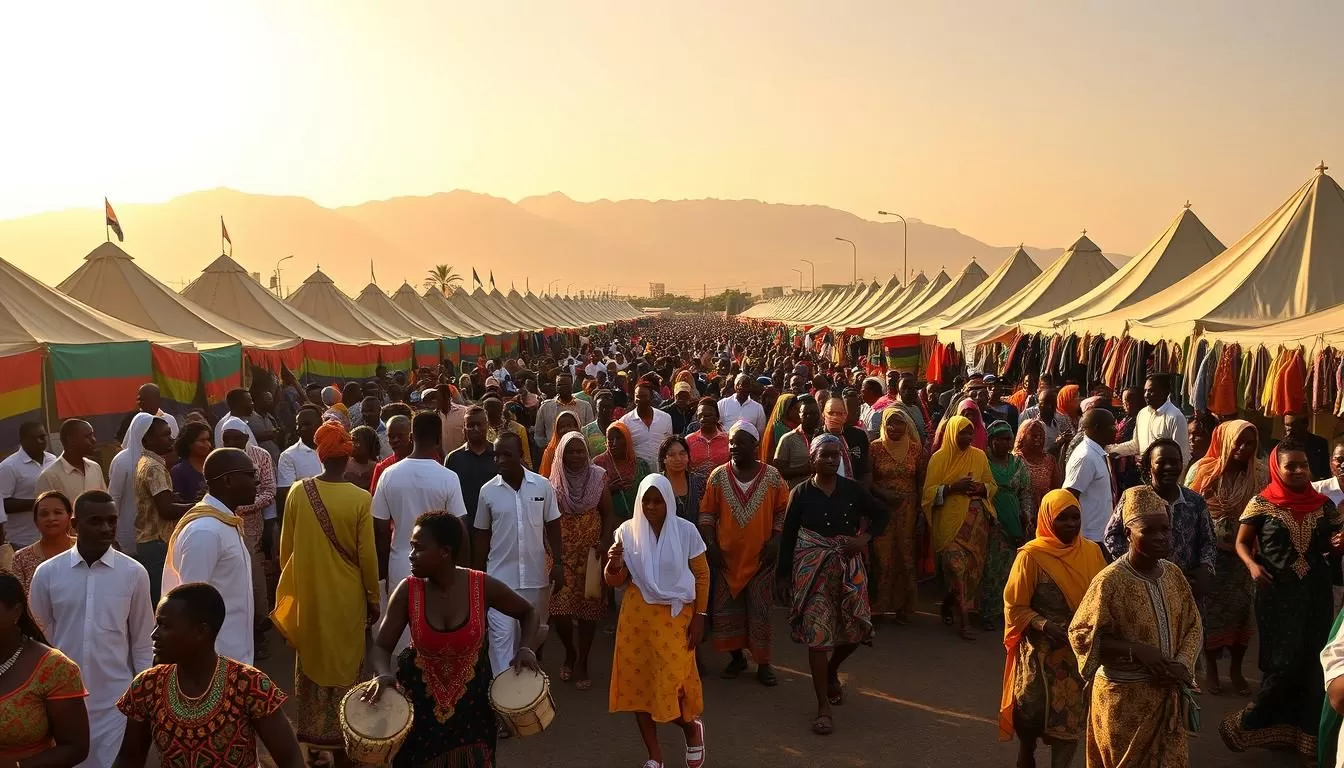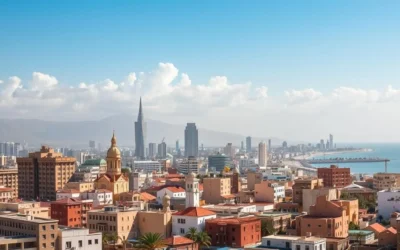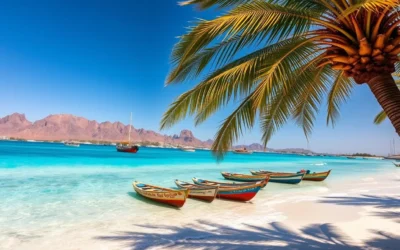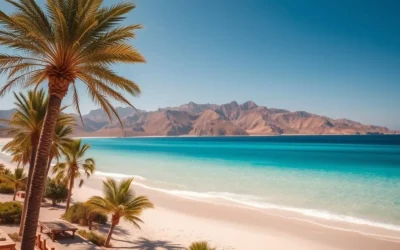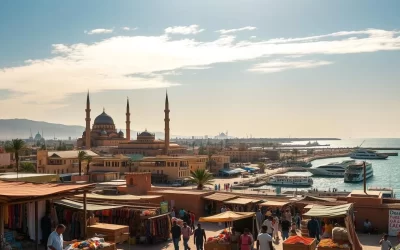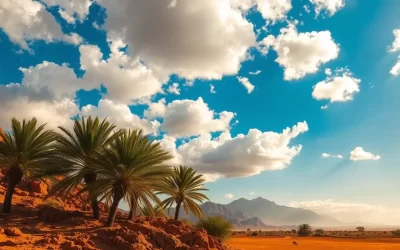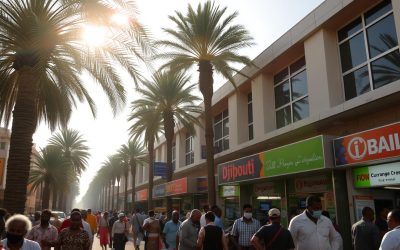✓ Accommodations✓ Flights✓ Rental Cars✓ Tours & Activities
As you plan your trip to Djibouti, you’ll discover that this country offers more than just its strategic maritime importance; it’s a vibrant cultural hub. Located at the mouth of the Red Sea, Djibouti city is not only a key refueling and transshipment center but also a melting pot of cultures due to its unique position on the northeast coast of the Horn of Africa.
When you travel to this fascinating country, timing your visit to coincide with its festivals can significantly enhance your experience. These events showcase the rich cultural heritage and traditions of Djibouti, providing a unique window into local life and customs. By experiencing these festivals, you’ll gain deeper insights into the society and create unforgettable memories of your journey.
The Cultural Tapestry of Djibouti
As a gateway to the Horn of Africa, Djibouti’s cultural heritage is uniquely diverse. The country‘s strategic location has made it a melting pot of African, Arab, and European influences, evident in its architecture, language, and cuisine.
A Gateway to the Horn of Africa
Djibouti serves as a cultural crossroads, where different civilizations have converged to create a rich cultural landscape. In city centers like Djibouti City and Ali Sabieh, you can observe the blend of traditions that have shaped the nation’s identity. The country’s history as an important trading hub has contributed to its diverse cultural heritage.
The Blend of Traditions and Influences
The cultural sites throughout Djibouti showcase its diverse heritage, making it a fascinating place to explore. Neighboring countries like Ethiopia, Somalia, and Eritrea have contributed to Djibouti’s cultural mosaic through trade, migration, and shared histories, forming an integral part of its identity.
Why Festivals Matter in Djiboutian Culture
Festivals in Djibouti are a vibrant expression of the country’s rich cultural heritage, playing a significant role in shaping the nation’s identity. As you explore Djibouti, you’ll find that its festivals are a testament to the country’s diverse cultural influences, blending African, Arab, and French traditions into a unique cultural experience.
Community Celebrations in a Strategic Location
Djibouti’s strategic location between Africa and the Middle East has made it a crossroads of traditions, reflected in its diverse festival calendar. The country’s festivals, such as those in Djibouti City, serve as vital expressions of cultural identity and community cohesion. For the people of Djibouti, these celebrations provide a way to preserve and celebrate their heritage in a rapidly changing world.
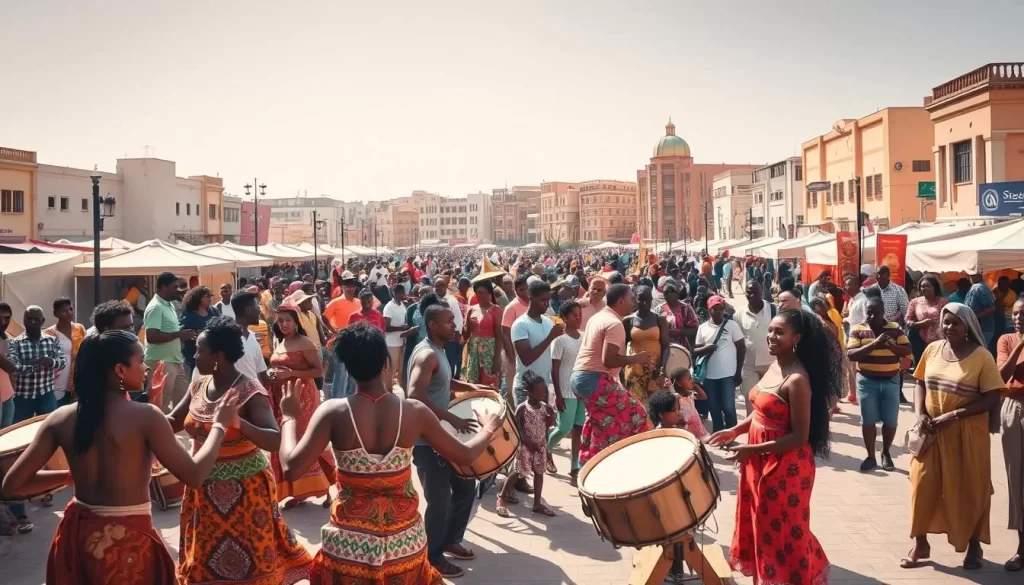
The Role of Religion and History
Religious celebrations form the backbone of Djibouti’s festival calendar, with Islamic traditions playing a central role in community life. Historical events, particularly the struggle for independence, are commemorated through festivals that honor the nation’s journey. Visitors to iconic places like Lake Assal often time their trips to coincide with festivals, enhancing their travel experience.
| Festival | Significance | Highlights |
|---|---|---|
| Independence Day | Commemorates Djibouti’s independence | Parades, dancing, public speeches |
| Eid al-Fitr | Celebrates the end of Ramadan | Family gatherings, traditional cuisine |
| Eid al-Adha | The Feast of Sacrifice | Community feasts, religious ceremonies |
In Djibouti City and throughout the country, festivals are an integral part of the cultural calendar, offering a unique way to experience the local traditions. By participating in these celebrations, you can gain a deeper understanding of Djibouti’s rich cultural heritage.
Planning Your Festival Visit to Djibouti
To make the most of your travel experience in Djibouti, it’s essential to plan your visit around its vibrant festivals. The best way to immerse yourself in Djiboutian culture is by attending one of its many festivals, but when should you go?
When considering the time to visit, the cooler months from October to April are ideal. During this period, the climate is more suitable for exploring the outdoors, and many festivals take place, making it the perfect time for festival attendance.
Best Times to Experience Djiboutian Festivals
The cooler months offer milder temperatures, making the weather conditions perfect for sightseeing and participating in outdoor activities. You should make sure to check a reliable travel guide for up-to-date information on festival dates, as some religious celebrations follow the lunar calendar.
What to Pack and Prepare
When preparing for your trip, research flights carefully, as connections to Djibouti can be limited from certain regions. Pack clothing that respects local customs while keeping you comfortable in Djibouti’s climate. Consider extending your stay to include side trips to natural wonders like Moucha Island, allowing time for both festival experiences and hiking adventures. Allow extra days in your itinerary for unexpected festival extensions or travel delays.
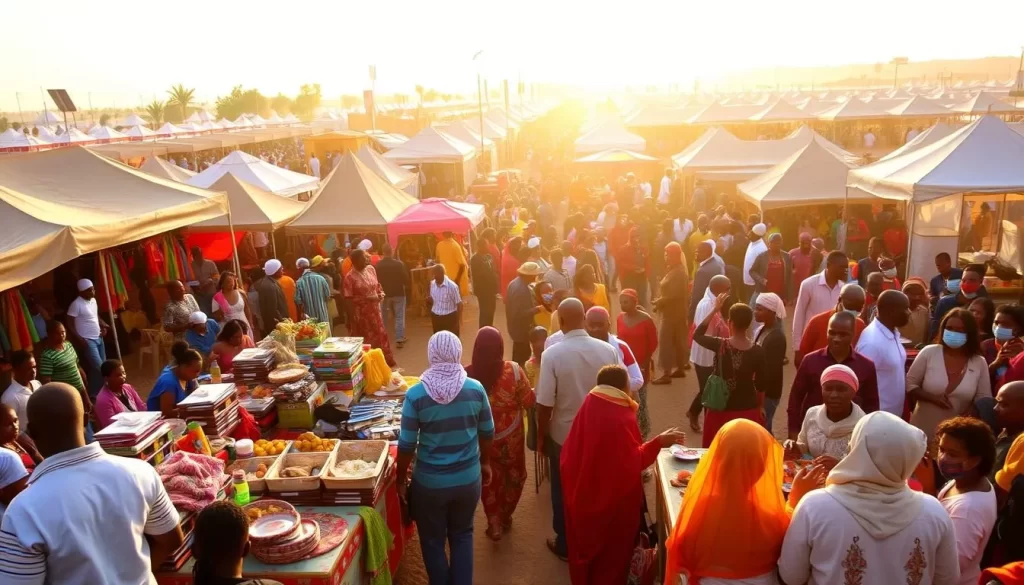
Eid al-Fitr: Celebrating the End of Ramadan
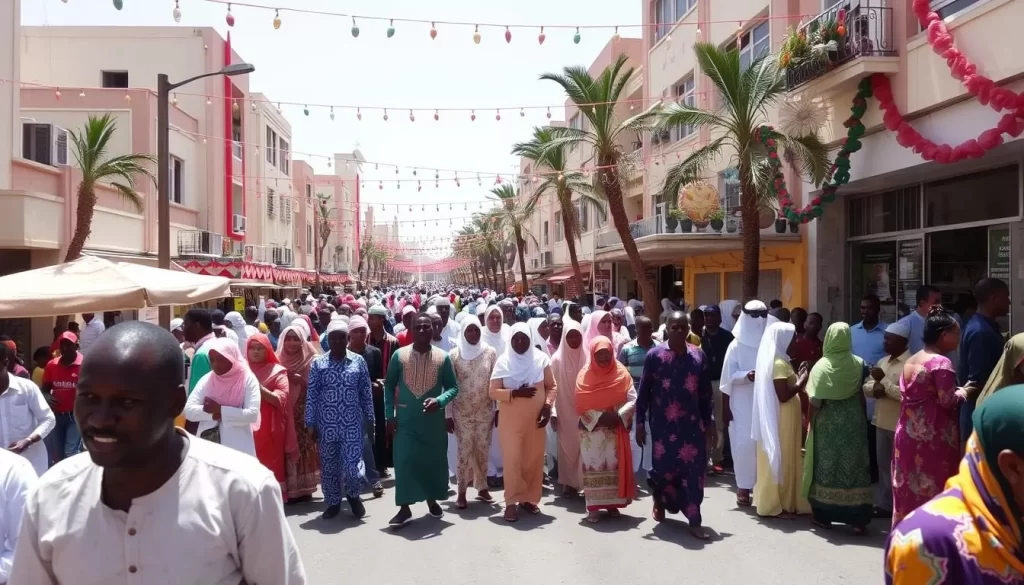
In Djibouti, Eid al-Fitr is a joyous occasion that embodies the spirit of community and faith. This significant Islamic holiday marks the end of Ramadan, the holy month of fasting, with vibrant festivities that bring together families, friends, and communities.
The Significance and Traditions
Eid al-Fitr stands as one of the most important religious celebrations in Djibouti, marking the end of Ramadan with communal joy and spiritual reflection. The festival typically spans two days filled with prayer, feasting, and community gatherings throughout the city and rural areas. Traditional food plays a central role in the festivities, with special dishes like lahuh (sourdough pancakes) and spiced meats prepared specifically for the occasion.
Visitor Experience and Highlights
For visitors, Eid al-Fitr offers a unique experience to witness Djiboutian hospitality at its finest, as many locals welcome guests to join their celebrations. The central mosque in Djibouti City becomes a focal spot for morning prayers, creating a spectacular scene as thousands gather in their finest clothes. You can immerse yourself in the local culture by participating in communal meals and enjoying traditional food.
Eid al-Adha: The Feast of Sacrifice
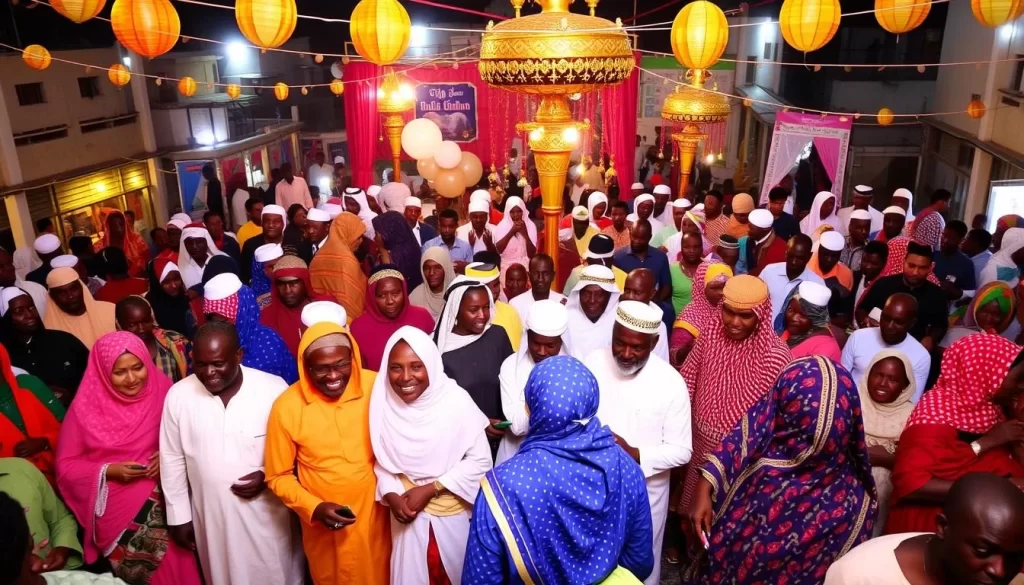
In Djibouti, Eid al-Adha is celebrated with great fervor, commemorating the willingness of Ibrahim to sacrifice his son as an act of obedience to God’s command. This significant religious festival brings communities together for prayer, feasting, and celebration, with a greater emphasis on sacrifice and charity.
Religious Importance and Customs
Eid al-Adha, known as the Feast of Sacrifice, is one of the most significant religious festivals in Djibouti. It commemorates Prophet Ibrahim’s devotion to God. The celebration typically lasts for three days, with the first day dedicated to morning prayers and the ritual sacrifice of animals, usually sheep or goats.
Community Feasts and Activities
In Djibouti City, the festival transforms public spaces as families gather to share meals and exchange gifts, creating a warm community atmosphere. Food is central to the celebration, with the sacrificial meat divided into three portions: one for the family, one for friends and neighbors, and one for those in need. Visitors to the city during this time will witness the importance of charity and community support in Djiboutian culture.
Markets and shopping areas become especially busy in the days leading up to the festival, as families prepare by purchasing new clothes and supplies for the celebration.
Mawlid al-Nabi: Honoring the Prophet’s Birth
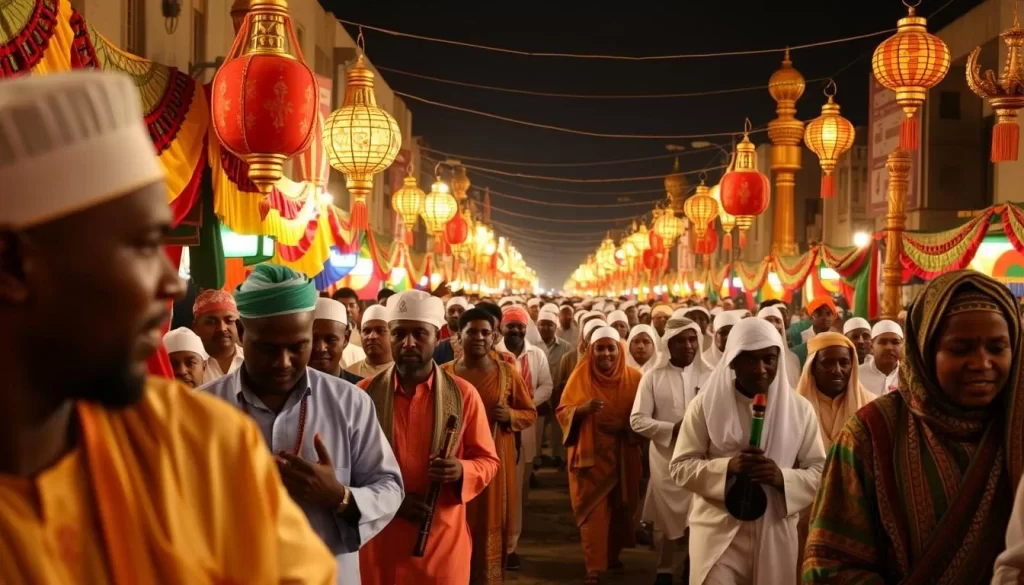
As you immerse yourself in the vibrant culture of Djibouti, you’ll have the opportunity to experience the joyous celebrations of Mawlid al-Nabi. This significant festival honors the birth of the Prophet Muhammad, drawing a mix of locals and visitors who come together for a spiritual and cultural experience.
Traditional Celebrations and Poetry
Mawlid al-Nabi is a day of spiritual reflection and cultural celebration throughout Djibouti. The festival showcases the rich tradition of religious poetry in the Islamic world, with special recitations and performances held in mosques and public spaces. You can expect a lot of chanting and drumming, with a strong emphasis on spirituality rather than a party vibe.
Cultural Performances and Processions
In the city of Djibouti, colorful processions move through the streets, featuring chanting, drumming, and displays of religious devotion. Traditional music plays a significant role in the celebrations, with distinctive rhythms and melodies that have been passed down through generations. These cultural performances offer visitors a window into the artistic expressions of faith that are unique to this region.
Independence Day: Djibouti’s National Celebration
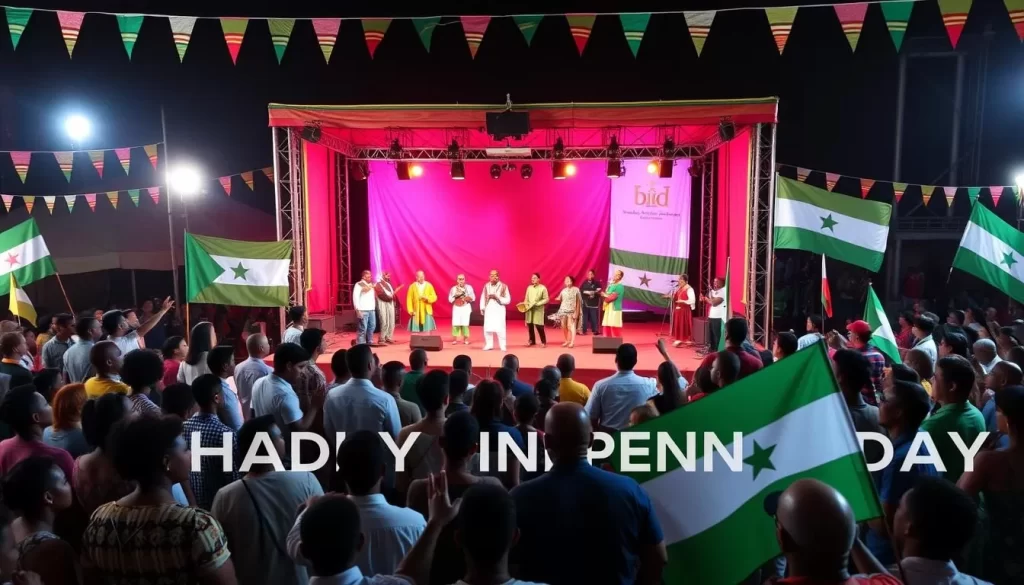
Djibouti’s Independence Day is a vibrant celebration that reflects the country’s history, culture, and national identity. On June 27th, the nation comes together to commemorate its liberation from French colonial rule in 1977.
Historical Significance
June 27th marks one of the most important days in Djibouti’s calendar – Independence Day. This day represents Djibouti’s emergence as a sovereign country on the world stage. The historical significance of this day cannot be overstated, as it symbolizes the nation’s transition to independence.
The transition was relatively peaceful compared to the struggles faced by other African nations, making Djibouti’s independence a unique story.
Parades, Performances, and Public Events
The capital city becomes the central place for celebrations, with government buildings and public places decorated in the national colors of blue, white, and green. Military parades showcase the country’s armed forces, while cultural performances highlight the diverse artistic traditions from different regions.
Public speeches by government officials remind citizens of the struggle for independence and outline visions for the nation’s future. For visitors, Independence Day offers a rare opportunity to see Djiboutians united in national pride.
Ras-Dika Festival: A Summer Celebration
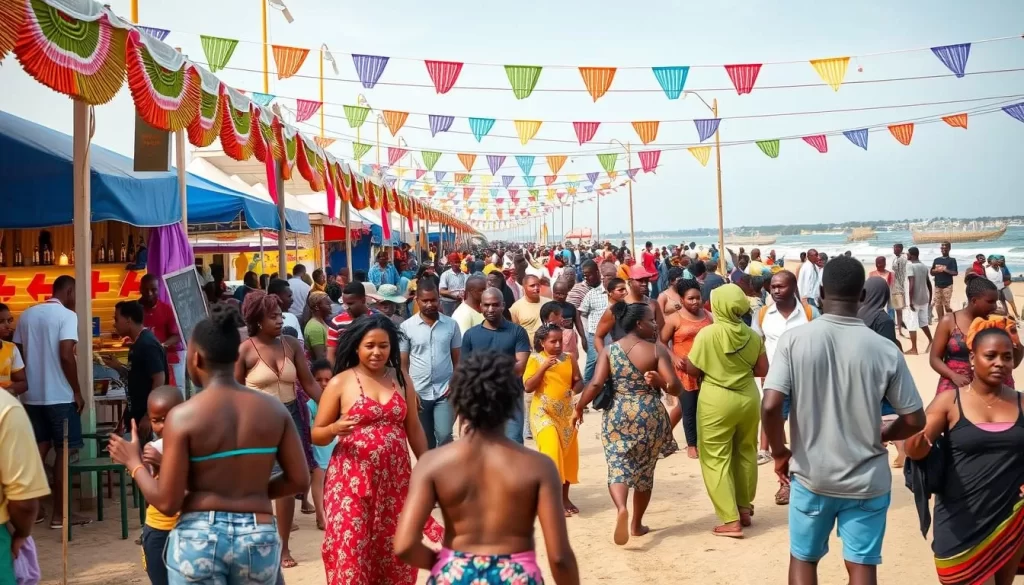
As the summer months approach, Djibouti City prepares for the Ras-Dika Festival, a celebration of its rich maritime heritage. Held annually in June, this three-day festival is a refreshing way to experience local culture during the warmer months.
Origins and Significance
The Ras-Dika Festival originated as a way to celebrate Djibouti’s coastal heritage and maritime traditions. It’s a significant event that highlights the country’s connection to the sea, making it a unique cultural experience.
Activities and Entertainment
During Ras-Dika, you can enjoy various activities such as swimming competitions, boat races, and beach sports. The festival has also evolved to include music performances, food stalls, and craft exhibitions, making it a comprehensive cultural experience. For those planning a summer trip to Djibouti, Ras-Dika provides one of the best opportunities to interact with locals in a festive atmosphere. The beachfront areas become a popular spot for both daytime activities and evening entertainment.
Adventure seekers can combine festival attendance with hiking excursions to nearby sites, creating a balanced itinerary of cultural and natural experiences. This way, you can enjoy the best of Djibouti in one trip.
Lesser-Known Cultural Celebrations in Djibouti
You can experience the authentic culture of Djibouti by attending its lesser-known regional celebrations. These events offer a unique glimpse into the country’s rich cultural heritage, away from the major festivals.
Local and Regional Festivities
Djibouti’s diverse regions host various local festivities that are worth exploring. For instance, the Day Forest area is known for its seasonal gatherings that mark important agricultural milestones. These events feature unique rituals specific to the area’s inhabitants, providing an authentic cultural experience. Along the Gulf of Tadjoura, fishing communities celebrate their maritime heritage with boat blessings and seafood feasts, which are rarely witnessed by tourists.
Seasonal and Traditional Gatherings
The Goda Mountains host traditional gatherings where locals share oral histories and perform dances that have remained unchanged for generations. These regional festivities often coincide with natural phenomena or seasonal changes, making them deeply connected to the specific places where they occur. Visiting Moucha Island during local celebration days provides one of the most exclusive cultural experiences in Djibouti. What these events lack in international recognition, they make up for in authenticity, offering visitors rare opportunities to experience traditions that haven’t been modified for tourism.
- Experience the unique cultural heritage of Djibouti’s regions.
- Attend seasonal gatherings in the Day Forest area.
- Witness boat blessings and seafood feasts along the Gulf of Tadjoura.
- Participate in traditional gatherings in the Goda Mountains.
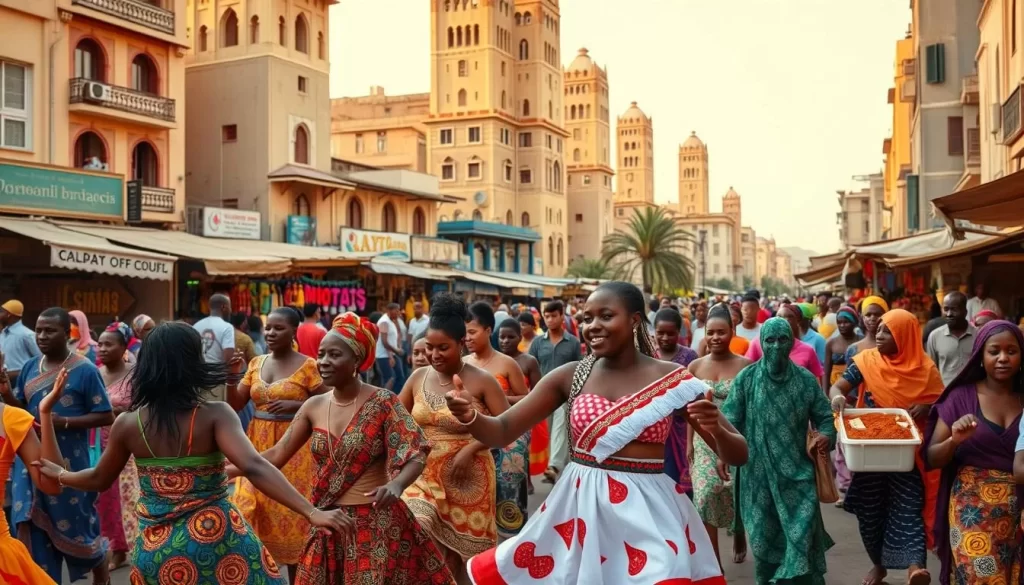
Djibouti: Top Festivals to Check Out When Visiting – Practical Tips
To make the most of your trip to Djibouti, it’s essential to be aware of the practical aspects of attending local festivals. Careful planning is recommended to ensure a pleasant stay, especially in terms of budget and timing.
Cultural Etiquette and Respectful Participation
When attending festivals in Djibouti City or exploring attractions like Day Forest and Moucha Island, respecting local customs is essential. Make sure to research specific etiquette for each festival, as religious celebrations have different expectations than secular events. You should also plan your time efficiently by combining festival attendance with visits to natural wonders like Lake Assal.
Photography and Social Interactions
Photography during festivals requires sensitivity; always ask permission before taking pictures of individuals, especially during religious ceremonies. Learning a few basic French or Arabic phrases can facilitate positive social interactions during festivals. You can also consider hiking and outdoor activities, but be mindful of the day‘s heat.
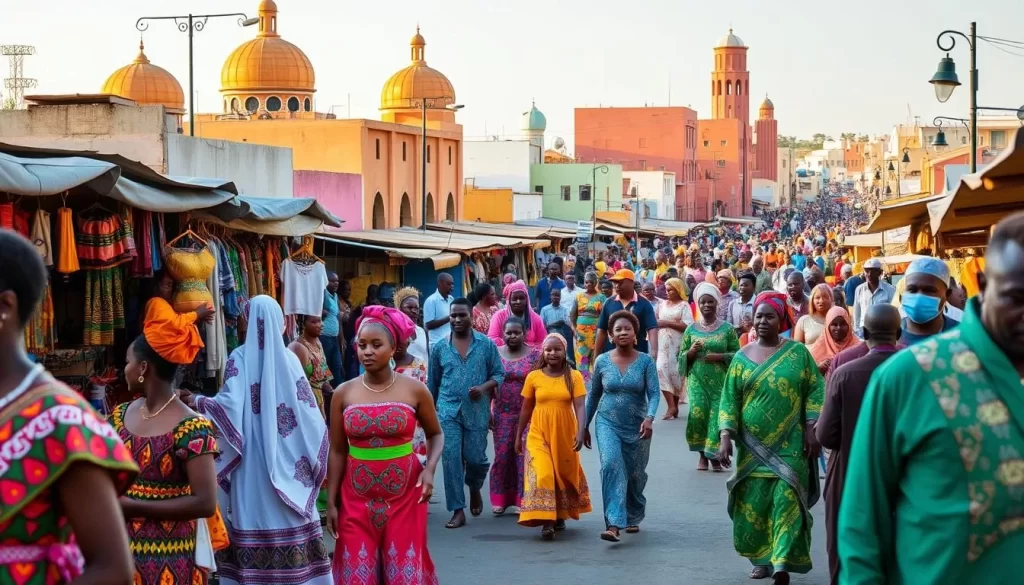
Conclusion: Embracing the Festive Spirit of Djibouti
With its unique blend of African, Arabic, and French influences, Djibouti offers a festival experience like no other. The country’s festivals provide a window into its rich cultural heritage and traditions that have evolved over centuries.
Visitors can experience vibrant celebrations, from religious festivities to national commemorations. Use this travel guide to plan around these events and explore Djibouti’s stunning natural sites and warm hospitality, creating a complete travel experience. Before you go, ensure a smooth journey by checking the necessary vaccination requirements and travel advisories.
The above is subject to change.
Check back often to TRAVEL.COM for the latest travel tips and deals.
